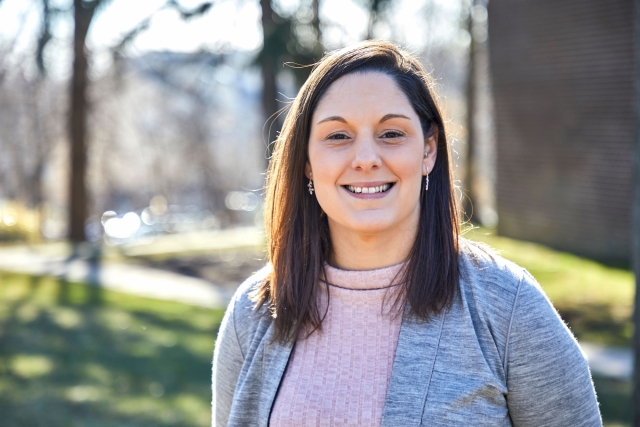Chestnut Hill College issued the following on Sep. 15
CHC ALUMNA, AMANDA CAPPELLETTI '10, HOPING TO CLAIM PA STATE SENATE SEAT
Entering the race for the 17th State Senatorial District in Pennsylvania is Amanda Cappelletti '10, Vice Chair of the East Norriton Board of Supervisors and Chestnut Hill College graduate, equipped with the experience and goals for confronting today’s most relevant issues, from public health to gun violence.
While this is her maiden run for public office, she’s no stranger to providing for the public weal. Armed with a bachelor's degree in international business, language and culture from CHC and a master's degree in public health and a law degree from Temple University, Cappelletti has worked in Harrisburg to promote progressive policy. As a Fellow for the ACLU of Pennsylvania, she was a member of the initial group awarded the William Penn Fellowship through the Governor’s office.
She advocated for children at the Office of Child Development and Early Learning, and served as a policy specialist at the Department of Human Services, tracking successful implementation of legislation. As Director of Policy for Planned Parenthood, Cappelletti advocated for proactive reproductive legislation.
Curbing gun violence in the state is a prominent goal of Cappelletti’s when she reaches the Pennsylvania House. Pennsylvania ranks in the top twelve most heavily armed states in the US. In 2019, more than 1,450 people were shot in Philadelphia, averaging to more than four people a day.
Cappelletti will begin by seeking a longer waiting period for gun purchases and is intent on working with fellow representatives on arriving at a plan to end this scourge.
Cappelletti also wants to add to Governor Wolf’s efforts to increase the minimum wage.
“We have seen that our minimum wage has stagnated at $7.25 per hour,” said Cappelletti. A yearly salary at that rate delivers an income of $15,000. “I believe that we can [increase it] in a way that ensures economic stability.” Cappelletti says it will be a struggle, admitting that this viewpoint is not going to make a number of business people happy.
She has an eye on changing school funding, recognizing that in Pennsylvania, schools are inequitably funded through local property taxes. A major consequence of that property tax method is that students and schools in well-to-do areas receive much more financial assistance than schools and students in poverty-stricken neighborhoods.
“That local property tax also puts a burden on homeowners and property owners throughout the state,” says Cappelletti.
Cappelletti notes a recent development called the Fair Funding Formula, saying that with it, “we do see a little bit of an increase and a slightly more equitable way of funding our schools.” She is geared toward modifying this plan with legislators and revamping that formula, resulting in “our children having made available to them a high-quality public education, regardless of how much money their parents make.”
Also on Cappelletti’s mind is the public health issue of the opioid crisis that is wreaking havoc and death across the United States. Philadelphia is not escaping the carnage as Pennsylvania Attorney General Josh Shapiro claims that opioids, heroin and fentanyl kill 12 Pennsylvanians every day and more than three a day in Philadelphia alone. Cappelletti knows that more effort should be spent on curtailing drug use, but she also wants to increase assistance to those in need of recovery, including enlarging the availability of treatment.
Cappelletti promotes legislation to change Pennsylvania’s 1959 Equal Pay Act to protect worker’s rights and end the gender gap in income. According to recent studies, women in Pennsylvania earn just 81% of what men earn doing the same kind of work. Similarly, she seeks the end of discrimination, dismissiveness and sexual harassment in the workplace.
Pennsylvania has expanded Medicaid but Cappelletti says more is needed. For example, legislation is needed to reduce wait times and laws need to be passed that convert the Affordable Care Act features into state law. Two prominent ones protect individuals with pre-existing conditions and require essential health benefits coverage.
Cappelletti promotes the idea that quality healthcare is affordable and that seeing a doctor, having a child or a medical emergency should not bankrupt you.
Like any future office holder, Cappelletti has crafted a personal platform of purpose, conviction and objectives. All are laudable and a number are far-reaching. She could easily be dismissed for overreach except that she has a roster of hard-earned experience and accomplishment to back it up.
Original source can be found here.
Source:Chestnut Hill College




 Alerts Sign-up
Alerts Sign-up